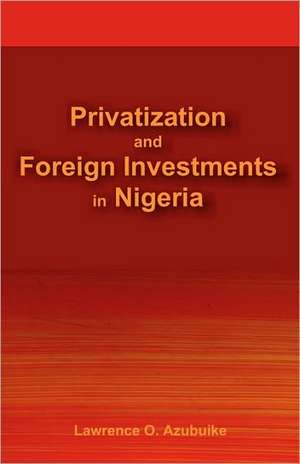Privatization and Foreign Investments in Nigeria
Autor Lawrence Okechukwu Azubuikeen Limba Engleză Paperback – 24 oct 2009
Preț: 233.97 lei
Nou
Puncte Express: 351
Preț estimativ în valută:
44.77€ • 46.48$ • 37.34£
44.77€ • 46.48$ • 37.34£
Carte tipărită la comandă
Livrare economică 18-24 martie
Preluare comenzi: 021 569.72.76
Specificații
ISBN-13: 9781599425009
ISBN-10: 1599425009
Pagini: 274
Dimensiuni: 140 x 216 x 15 mm
Greutate: 0.32 kg
Editura: Brown Walker Press (FL)
ISBN-10: 1599425009
Pagini: 274
Dimensiuni: 140 x 216 x 15 mm
Greutate: 0.32 kg
Editura: Brown Walker Press (FL)












